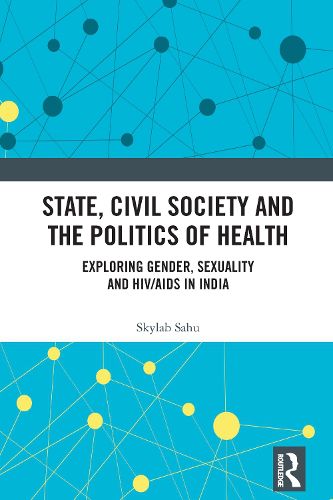Readings Newsletter
Become a Readings Member to make your shopping experience even easier.
Sign in or sign up for free!
You’re not far away from qualifying for FREE standard shipping within Australia
You’ve qualified for FREE standard shipping within Australia
The cart is loading…






This book provides a comprehensive analysis of the discourse on health in India, examining governance, policies, programmes, and the involvement of the state and civil society in ensuring health for all and especially for people living with HIV/AIDS.
The book critically examines government measures to improve healthcare services in India, specifically for disadvantaged groups like the poor and women who face several obstacles in accessing healthcare. It explores various aspects of healthcare accessibility, gender equity measures and strategies implemented by the state and highlights the significant contributions of civil society organizations and activists in shaping healthcare provisions, as well as their influence on the discourse surrounding health and HIV/AIDS. With a special study based on the author's research on HIV-positive women in Karnataka (a high-prevalence state) and West Bengal (a low-prevalence state), and an examination of government policies, financial allocations, and relevant reports, this book fills a crucial gap in academic literature by offering a comprehensive analysis of health and governance in relation to HIV-positive women, in India.
The book will be a valuable resource for students and researchers in public health, policy studies, community health, gender studies, sociology of health and illness, and Indian government and politics. It will also be useful for policymakers in the development of more effective and inclusive healthcare policies.
$9.00 standard shipping within Australia
FREE standard shipping within Australia for orders over $100.00
Express & International shipping calculated at checkout
This book provides a comprehensive analysis of the discourse on health in India, examining governance, policies, programmes, and the involvement of the state and civil society in ensuring health for all and especially for people living with HIV/AIDS.
The book critically examines government measures to improve healthcare services in India, specifically for disadvantaged groups like the poor and women who face several obstacles in accessing healthcare. It explores various aspects of healthcare accessibility, gender equity measures and strategies implemented by the state and highlights the significant contributions of civil society organizations and activists in shaping healthcare provisions, as well as their influence on the discourse surrounding health and HIV/AIDS. With a special study based on the author's research on HIV-positive women in Karnataka (a high-prevalence state) and West Bengal (a low-prevalence state), and an examination of government policies, financial allocations, and relevant reports, this book fills a crucial gap in academic literature by offering a comprehensive analysis of health and governance in relation to HIV-positive women, in India.
The book will be a valuable resource for students and researchers in public health, policy studies, community health, gender studies, sociology of health and illness, and Indian government and politics. It will also be useful for policymakers in the development of more effective and inclusive healthcare policies.